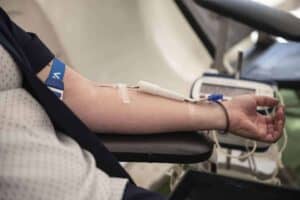Hammanskraal residents said they feel like the service delivery given to black people in Tshwane is substandard.

Livid residents of Hammanskraal chased away Tshwane Mayor Cilliers Brink at the Jubilee Hospital, north of Pretoria, after accusing him of not taking their health seriously.
Brink was supposed to hold an inspection at the hospital due to the recent cholera outbreak that led to several people dying in the area.
‘Bottom of the barrel’
A resident who spoke to Eyewitness News said the reason they chased the mayor away was because, according to him, even though Brink was voted in by the black majority, preference was given to the white minority.
He said black people were just an afterthought.
WATCH: Hammanskraal residents chase Brink away
[WATCT] Community members of Hammanskraal chase away Tshwane Executive Mayor, Cilliers Brink at the Jubilee Hospital.
— EWN Reporter (@ewnreporter) May 22, 2023
Brink was due to hold an oversight inspection at the hospital due to the recent cholera outbreak that has killed atleast 12 people in the area. TCG pic.twitter.com/ijt7nGm1tl
A Hammanskraal pastor said his congregants needed to drink water during church services and their health would be compromised.
“If the crisis of water is carrying on like this, it means a lot of people will die.
“Before people supply water, they must test first if the water is good. And if they send water without testing, it seems they want to kill people. It seems as if they don’t take the people of Hammanskraal seriously. He (Brink) is not careful with his job.”
Death toll rises
Meanwhile, Water and Sanitation Deputy Minister David Mahlobo confirmed on Monday that 15 people have died so far due to the outbreak.
Mahlabo held a media briefing with authorities at Jubilee Hospital in Hammanskraal.
The health department‘s spokesperson Motalatale Modiba said since last Monday, 95 people from Kanana, Suurman, Majaneng, Green Field, Carousel View, Lephengville and Sekampaneng had sought medical assistance for the diarrhoeal disease.
NOW READ: Cholera outbreak death toll rises to 12
What is cholera?
Cholera is an acute diarrhoeal infection caused by eating and drinking of food or water contaminated with the bacterium Vibrio cholerae.
Most people infected may not develop any symptoms, although the bacteria can be found in their faeces for 1-10 days after infection and are shed back into the environment, potentially infecting other people.
Symptoms start appearing between 12 hours and five days after eating contaminated food or water and can affect both children and adults. It can kill within hours if untreated.
Symptoms
Cholera is easily treatable. The majority of people can be treated successfully through prompt administration of oral rehydration solution (ORS) dissolved in one litre of clean water. Adult patients may require up to six litres of ORS to treat moderate dehydration on the first day.
Severely dehydrated patients are at risk of shock and require the rapid administration of intravenous fluids (drip). These patients are also given appropriate antibiotics to diminish the duration of diarrhea, reduce the volume of rehydration fluids needed, and shorten the amount and duration of bacteria excretion in their stool.
ALSO READ: Here’s everything you need to know about cholera






